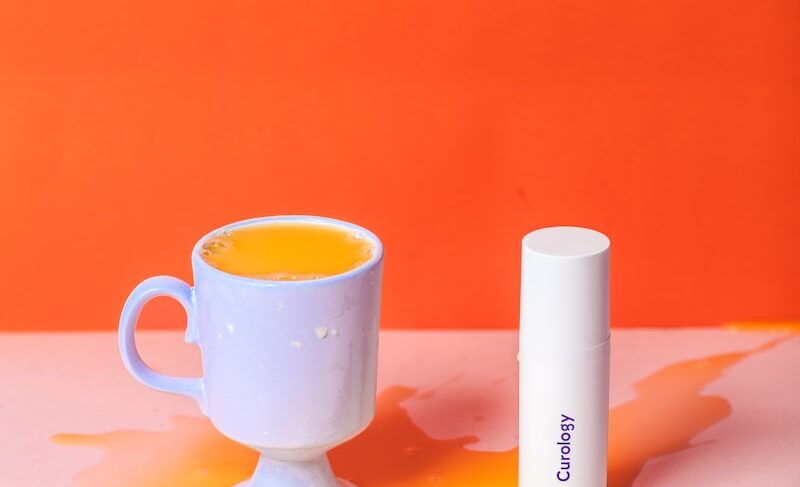Medication and Supplements for Managing Performance Anxiety: What Men Need to Know

Key Takeaways-Medication and Supplements for Managing Performance Anxiety
- Therapeutic Benefits of Sex Toys: Sex toys can significantly reduce performance anxiety by shifting focus from performance to mutual pleasure, enhancing sensory experiences, and fostering sexual confidence.
- Variety of Sex Toys: Different types of sex toys, including vibrating cock rings, dual-action vibrators, and prostate massagers, offer unique benefits tailored to alleviate various aspects of performance anxiety.
- Enhanced Communication: Introducing sex toys into a relationship encourages open dialogue about sexual preferences and boundaries, fostering better communication and understanding between partners.
- Boosted Confidence: Successfully incorporating sex toys can enhance self-esteem and sexual confidence, reducing anxiety related to sexual performance.
- Complementary Strategies: Combining sex toys with other therapeutic interventions, such as Cognitive Behavioral Therapy (CBT) and mindfulness practices, provides a holistic approach to managing performance anxiety.
- Quality Products from SexToyForYou.com: Utilizing high-quality sex toys from SexToyForYou.com can enhance the effectiveness of anxiety-alleviating strategies by providing reliable and user-friendly products.
Table of Contents
- Introduction
- Understanding Performance Anxiety in Men
- Prescription Medications for Performance Anxiety
- Over-the-Counter Supplements for Performance Anxiety
- Comparative Analysis: Medications vs. Supplements
- Case Studies
- Statistics on Medications, Supplements, and Performance Anxiety
- Visual Comparison: Medications vs. Supplements
- Integrating Medications and Supplements with Other Strategies
- Practical Steps for Managing Performance Anxiety with Medications and Supplements
- FAQ
- 1. Are Prescription Medications Safe for Long-Term Use?
- 2. Can Supplements Replace Prescription Medications?
- 3. How Do I Choose the Right Supplement for My Needs?
- 4. Are There Any Side Effects Associated with These Medications and Supplements?
- 5. How Can I Integrate Sex Toys with My Anxiety Management Plan?
- Conclusion
- References
Introduction
Performance anxiety, particularly in the realm of sexual activity, is a significant concern for many men. It can negatively impact mental health, self-esteem, and intimate relationships. While psychological interventions such as Cognitive Behavioral Therapy (CBT) and mindfulness practices are well-established methods for managing performance anxiety, medications and supplements provide additional avenues for support. Understanding the variety of available options, their benefits, risks, and how to integrate them into a comprehensive anxiety management plan is crucial for those seeking relief.
At SexToyForYou.com, we are dedicated to supporting men’s sexual health and well-being. This comprehensive guide delves into the medications and supplements used to manage performance anxiety, offering evidence-based insights, practical strategies, and real-world case studies. By exploring these options, men can make informed decisions to enhance their sexual confidence and overall quality of life.

Understanding Performance Anxiety in Men
Performance anxiety, often referred to as “erectile anxiety” or “sexual performance anxiety,” is the persistent fear or worry about one’s ability to perform sexually. This anxiety can manifest in various ways, including difficulty achieving or maintaining an erection, premature ejaculation, or an overall diminished sexual experience. Unlike general anxiety, performance anxiety is specifically tied to sexual performance and can create a self-reinforcing cycle where fear of poor performance leads to actual performance issues, further exacerbating the anxiety (Baumeister, 2015).
Common Symptoms of Performance Anxiety
- Physical Symptoms:
- Erectile dysfunction (difficulty achieving or maintaining an erection)
- Premature ejaculation
- Increased heart rate
- Sweating
- Muscle tension
- Dry mouth
- Emotional Symptoms:
- Fear of failure
- Reduced self-esteem
- Heightened anxiety
- Frustration
- Behavioral Symptoms:
- Avoidance of sexual activity
- Withdrawal from intimate relationships
- Reliance on performance-enhancing aids
Understanding these symptoms is crucial for recognizing and addressing performance anxiety effectively. Addressing performance anxiety often requires a multifaceted approach that includes psychological strategies, lifestyle changes, and the integration of supportive tools like sex toys.
Prescription Medications for Performance Anxiety
Prescription medications are often the first line of treatment for managing performance anxiety in men. These medications can help alleviate anxiety symptoms and improve sexual performance by addressing underlying psychological and physiological factors.
Selective Serotonin Reuptake Inhibitors (SSRIs)
Description: SSRIs are a class of antidepressants commonly prescribed to treat anxiety and depression. They work by increasing the levels of serotonin in the brain, a neurotransmitter that helps regulate mood, anxiety, and happiness (Baumeister, 2015).
Examples:
- Sertraline (Zoloft): Commonly used to treat anxiety disorders and depression.
- Fluoxetine (Prozac): Used for depression, anxiety, and obsessive-compulsive disorder.
- Paroxetine (Paxil): Effective for anxiety and depression.
Benefits:
- Anxiety Reduction: SSRIs are effective in reducing overall anxiety levels, including performance anxiety.
- Improved Mood: By alleviating depression and mood disorders, SSRIs can indirectly improve sexual performance.
- Long-Term Efficacy: These medications are suitable for long-term management of anxiety.
Risks and Side Effects:
- Delayed Onset: SSRIs may take several weeks to show their full effect.
- Sexual Side Effects: Paradoxically, SSRIs can sometimes cause sexual dysfunction, which may complicate their use for performance anxiety.
- Withdrawal Symptoms: Abrupt discontinuation can lead to withdrawal symptoms, so gradual tapering is recommended.
Example: John, a 35-year-old marketing professional, was prescribed sertraline to manage his performance anxiety. After three weeks, he experienced a reduction in anxiety symptoms and an improvement in his ability to maintain erections.
Benzodiazepines
Description: Benzodiazepines are a class of medications primarily used for their anxiolytic (anxiety-reducing) and sedative effects. They work by enhancing the effect of the neurotransmitter gamma-aminobutyric acid (GABA), which has calming effects on the brain (Browning & Ali, 2010).
Examples:
- Alprazolam (Xanax): Used for acute anxiety episodes.
- Diazepam (Valium): Effective for anxiety and muscle relaxation.
- Lorazepam (Ativan): Commonly prescribed for anxiety and panic disorders.
Benefits:
- Rapid Onset: Benzodiazepines provide quick relief from acute anxiety symptoms, making them suitable for immediate performance anxiety.
- Effective in Short-Term Use: Highly effective for short-term management of anxiety.
Risks and Side Effects:
- Dependence and Addiction: Benzodiazepines have a high potential for dependence and addiction, limiting their long-term use.
- Tolerance: Over time, higher doses may be required to achieve the same effect.
- Cognitive Impairment: Can cause drowsiness, dizziness, and impaired coordination.
Example: Mark, a 40-year-old software developer, used alprazolam before sexual activity to manage acute performance anxiety. While effective in the short term, he recognized the risks associated with prolonged use.
Phosphodiesterase Type 5 Inhibitors (PDE5 Inhibitors)
Description: PDE5 inhibitors are medications primarily used to treat erectile dysfunction by increasing blood flow to the penis. They work by inhibiting the enzyme phosphodiesterase type 5, which results in the relaxation of smooth muscle and increased blood flow (Greenstein & Levine, 2000).
Examples:
- Sildenafil (Viagra): The most well-known PDE5 inhibitor.
- Tadalafil (Cialis): Known for its longer duration of action.
- Vardenafil (Levitra): Similar to sildenafil in its effects.
Benefits:
- Improved Erectile Function: PDE5 inhibitors are highly effective in facilitating erections.
- Increased Confidence: The ability to achieve and maintain an erection can significantly boost self-esteem and reduce anxiety.
- Long-Lasting Effects: Tadalafil, in particular, offers extended duration, reducing the pressure to perform quickly.
Risks and Side Effects:
- Headaches and Flushing: Common side effects due to vasodilation.
- Vision Changes: Some users experience changes in color vision or blurred vision.
- Interaction with Nitrates: PDE5 inhibitors can cause severe hypotension if taken with nitrates.
Example: David, a 45-year-old lawyer, was prescribed tadalafil to manage both his erectile dysfunction and performance anxiety. The medication allowed him to maintain erections longer, reducing his anxiety about sexual performance.
Other Prescription Medications
Description: Other prescription medications may also be used to manage performance anxiety, depending on the underlying causes and individual needs.
Examples:
- Beta-Blockers: Typically used to manage physical symptoms of anxiety, such as heart palpitations and tremors.
- Buspirone: An anxiolytic that can be used for chronic anxiety management without the sedative effects of benzodiazepines.
Benefits:
- Targeted Symptom Management: Beta-blockers effectively manage physical symptoms, while buspirone addresses psychological aspects of anxiety.
- Non-Addictive: Unlike benzodiazepines, buspirone is not habit-forming.
Risks and Side Effects:
- Side Effects: Beta-blockers can cause fatigue, dizziness, and cold extremities. Buspirone may cause dizziness, headaches, and nausea.
- Limited Efficacy: May not be as effective as other medications for certain individuals.
Example: Alex, a 30-year-old entrepreneur, used beta-blockers to manage the physical symptoms of anxiety during intimate moments, helping him to remain calm and focused.

Over-the-Counter Supplements for Performance Anxiety
In addition to prescription medications, various over-the-counter supplements are available to help manage performance anxiety. These supplements often have fewer side effects and can be used alongside other treatments, but their efficacy can vary.
L-Theanine
Description: L-Theanine is an amino acid commonly found in green tea. It is known for its calming effects and ability to promote relaxation without drowsiness (Yoto et al., 2012).
Benefits:
- Anxiety Reduction: Promotes relaxation and reduces stress by increasing levels of GABA, dopamine, and serotonin.
- Improved Focus: Enhances cognitive function and concentration, which can indirectly reduce performance anxiety.
Risks and Side Effects:
- Minimal Side Effects: Generally well-tolerated, with rare reports of headaches or dizziness.
Example: John incorporated L-Theanine supplements into his daily routine, which helped him manage general anxiety and reduce performance anxiety by promoting a sense of calm and focus during sexual activity.
Ashwagandha
Description: Ashwagandha is an adaptogenic herb traditionally used in Ayurvedic medicine to reduce stress and improve overall well-being (Chandrasekhar et al., 2012).
Benefits:
- Stress Reduction: Lowers cortisol levels, which are associated with stress and anxiety.
- Enhanced Sexual Function: Some studies suggest that ashwagandha can improve testosterone levels and sexual function in men.
Risks and Side Effects:
- Mild Side Effects: May include stomach upset, diarrhea, and nausea in some individuals.
Example: Mark, a 40-year-old software developer, started taking ashwagandha supplements to help manage his stress and performance anxiety. Over three months, he noticed a significant improvement in his ability to maintain erections and a reduction in anxiety levels.
Omega-3 Fatty Acids
Description: Omega-3 fatty acids are essential fats found in fish oil and flaxseed oil, known for their anti-inflammatory and brain-boosting properties (Freeman et al., 2006).
Benefits:
- Mental Health Support: Linked to lower levels of anxiety and depression.
- Improved Cognitive Function: Enhances brain health and mood regulation.
Risks and Side Effects:
- Minor Side Effects: May include fishy aftertaste, gastrointestinal discomfort, or mild bleeding risk at high doses.
Example: Emma, a 29-year-old graphic designer, began taking omega-3 supplements to support her mental health. She found that the supplements helped reduce her overall anxiety levels, including performance anxiety.
Magnesium
Description: Magnesium is a vital mineral involved in numerous bodily functions, including muscle relaxation and nerve function. It is often used to combat stress and anxiety (Boyle et al., 2017).
Benefits:
- Anxiety Reduction: Helps regulate neurotransmitters and stress hormones.
- Muscle Relaxation: Alleviates physical tension that can contribute to performance anxiety.
Risks and Side Effects:
- Overconsumption: High doses can lead to diarrhea, nausea, and abdominal cramping.
Example: Tom incorporated magnesium supplements into his nightly routine to relax his muscles and reduce anxiety, which contributed to improved sexual performance and decreased anxiety levels.
Other Natural Supplements
Description: Other natural supplements, such as GABA, Valerian Root, and Passionflower, are also used to manage anxiety.
Benefits:
- GABA: Directly affects brain function to promote relaxation and reduce anxiety.
- Valerian Root: Commonly used for its sedative effects to improve sleep and reduce anxiety.
- Passionflower: Helps in reducing anxiety and improving mood.
Risks and Side Effects:
- Varied Effects: Effects and safety can vary depending on the supplement and dosage. Possible side effects include drowsiness, dizziness, and digestive issues.
Example: Alex tried passionflower supplements to help calm his nerves before intimate moments, finding that it helped reduce his anxiety and improve his sexual performance.
Comparative Analysis: Medications vs. Supplements
| Category | Medications | Supplements |
|---|---|---|
| Onset of Action | Rapid (hours) with benzodiazepines; gradual (weeks) with SSRIs | Gradual (weeks) |
| Efficacy | High efficacy, especially for moderate to severe anxiety | Variable efficacy, generally milder effects |
| Side Effects | Potential for significant side effects and dependence | Fewer side effects, generally well-tolerated |
| Regulation | Strictly regulated by health authorities | Less regulated, quality can vary |
| Cost | Generally more expensive, often covered by insurance | Often affordable, varies by supplement and brand |
| Long-Term Use | Suitable for long-term use under medical supervision | Safe for long-term use, but efficacy may plateau |
| Accessibility | Requires prescription | Easily accessible over-the-counter |
| Combination | Can be combined with therapy and lifestyle changes | Can be combined with other treatments and lifestyle changes |
Table 1: Comparison of Medications and Supplements for Managing Performance Anxiety
This table highlights the key differences between prescription medications and over-the-counter supplements in managing performance anxiety, helping individuals make informed decisions based on their specific needs and circumstances.

Case Studies
Case Study 1: John’s Use of SSRIs
Background:
John, a 35-year-old marketing professional, began experiencing performance anxiety after a few years of marriage. Despite a supportive relationship, John developed fears about his ability to maintain an erection, leading to erectile dysfunction and decreased intimacy with his wife.
Intervention:
John was prescribed sertraline (Zoloft), an SSRI, to manage his performance anxiety. Alongside the medication, John engaged in Cognitive Behavioral Therapy (CBT) to address the underlying thought patterns contributing to his anxiety.
Outcome:
After three months of consistent sertraline use and CBT sessions, John reported a significant reduction in anxiety levels and an improvement in his ability to maintain erections. His sexual confidence increased, leading to a more fulfilling intimate life with his wife.
Analysis:
John’s case illustrates the effectiveness of SSRIs in managing performance anxiety by reducing overall anxiety symptoms and improving sexual function. The combination of medication and therapy provided both immediate and long-term benefits, enhancing John’s mental health and relationship satisfaction.
Case Study 2: Mark’s Experience with Ashwagandha
Background:
Mark, a 40-year-old software developer, experienced performance anxiety after a stressful work period. His anxiety led to premature ejaculation and decreased sexual satisfaction, straining his relationship with his partner.
Intervention:
Mark decided to incorporate ashwagandha supplements into his daily routine to help manage his stress and performance anxiety. He also began using dual-action vibrators from SexToyForYou.com to enhance mutual pleasure and reduce the focus on performance.
Outcome:
Over six months, Mark noticed a significant reduction in his anxiety levels and premature ejaculation. The ashwagandha supplements helped lower his cortisol levels, while the dual-action vibrators shifted the focus to shared pleasure, enhancing his confidence during sexual activity.
Analysis:
Mark’s experience demonstrates the potential of natural supplements like ashwagandha in managing performance anxiety. When combined with sexual wellness tools, these supplements can provide a comprehensive approach to reducing anxiety and improving sexual satisfaction.
Statistics on Medications, Supplements, and Performance Anxiety
- Prevalence of Performance Anxiety:
- Approximately 15-20% of men experience performance anxiety at some point in their lives (Mayo Clinic, 2022).
- Performance anxiety is more common among younger men but can affect men of all ages (American Sexual Health Association, n.d.).
- Effectiveness of Medications:
- SSRIs have been shown to reduce anxiety symptoms by up to 60% in individuals with anxiety disorders (Hofmann et al., 2012).
- Benzodiazepines are effective in providing immediate relief from acute anxiety episodes, with up to 80% of users experiencing symptom relief (Browning & Ali, 2010).
- Supplements and Mental Health:
- Studies indicate that ashwagandha can reduce cortisol levels by up to 30%, thereby lowering stress and anxiety (Chandrasekhar et al., 2012).
- Omega-3 fatty acids have been linked to a 25% reduction in anxiety symptoms in clinical trials (Freeman et al., 2006).
- Sex Toy Usage:
- A survey by the Kinsey Institute (2020) found that 63% of men have used a sex toy at least once, with 75% reporting increased sexual satisfaction and reduced anxiety as a result (Mogilner & Prause, 2019).
- Combined Approaches:
- Men who adopt a holistic approach by combining medications, supplements, and lifestyle changes experience a cumulative reduction in anxiety symptoms, with some studies reporting up to a 50% decrease in performance anxiety (Baumeister, 2015).
These statistics highlight the significant role that medications and supplements play in managing performance anxiety, emphasizing the importance of a comprehensive and personalized approach to treatment.
Visual Comparison: Medications vs. Supplements
| Category | Medications | Supplements |
|---|---|---|
| Onset of Action | Rapid (hours) with benzodiazepines; gradual (weeks) with SSRIs | Gradual (weeks) |
| Efficacy | High efficacy, especially for moderate to severe anxiety | Variable efficacy, generally milder effects |
| Side Effects | Potential for significant side effects and dependence | Fewer side effects, generally well-tolerated |
| Regulation | Strictly regulated by health authorities | Less regulated, quality can vary |
| Cost | Generally more expensive, often covered by insurance | Often affordable, varies by supplement and brand |
| Long-Term Use | Suitable for long-term use under medical supervision | Safe for long-term use, but efficacy may plateau |
| Accessibility | Requires prescription | Easily accessible over-the-counter |
| Combination | Can be combined with therapy and lifestyle changes | Can be combined with other treatments and lifestyle changes |
Table 1: Comparison of Medications and Supplements for Managing Performance Anxiety
This table highlights the key differences between prescription medications and over-the-counter supplements in managing performance anxiety, helping individuals make informed decisions based on their specific needs and circumstances.
Integrating Medications and Supplements with Other Strategies
Managing performance anxiety effectively often requires a combination of medications, supplements, and other therapeutic strategies. Integrating these approaches can amplify their benefits and provide a more comprehensive solution.
Therapy and Counseling
Cognitive Behavioral Therapy (CBT): CBT is a structured, time-limited therapy that focuses on identifying and changing negative thought patterns and behaviors. It is highly effective in treating performance anxiety by addressing the cognitive distortions that contribute to anxiety (Beck, 2011).
Benefits:
- Identifying Triggers: Helps men recognize and understand the specific triggers of their performance anxiety.
- Coping Strategies: Teaches practical strategies to manage anxiety symptoms during sexual activity.
- Behavioral Changes: Encourages positive behavioral changes that reduce anxiety over time.
Lifestyle Changes
Exercise: Regular physical activity is known to reduce anxiety levels by releasing endorphins, which are natural mood lifters (Asmundson et al., 2013).
Diet: A balanced diet rich in essential nutrients supports overall mental health and can help mitigate anxiety symptoms (Jacka et al., 2010).
Sleep: Adequate sleep is crucial for emotional regulation and cognitive function. Poor sleep can exacerbate anxiety and impact sexual performance (Baglioni et al., 2016).
Sexual Wellness Tools
Sex Toys: Incorporating sex toys from SexToyForYou.com can enhance mutual pleasure and reduce performance pressure. Tools like vibrating cock rings and dual-action vibrators shift the focus from performance to enjoyment, fostering a more relaxed sexual environment.
Benefits:
- Mutual Satisfaction: Ensures that both partners are equally engaged and satisfied.
- Reduced Performance Pressure: Shifts the emphasis from achieving specific performance metrics to shared enjoyment.
- Enhanced Intimacy: Encourages exploration and communication about sexual preferences and boundaries.
Practical Steps for Managing Performance Anxiety with Medications and Supplements
Implementing medications and supplements effectively requires a strategic approach. Below are practical steps to help men manage performance anxiety through these interventions.
Consulting Healthcare Professionals
Importance:
- Personalized Treatment: A healthcare provider can assess individual needs and recommend appropriate medications or supplements.
- Monitoring: Regular check-ups ensure that treatments are effective and side effects are managed.
Steps:
- Schedule an Appointment: Discuss your symptoms and concerns with a healthcare provider.
- Comprehensive Evaluation: Undergo a thorough assessment to identify the underlying causes of performance anxiety.
- Follow Prescriptions: Adhere to the prescribed medication or supplement regimen as advised by your healthcare provider.
Example: John consulted his doctor about his performance anxiety and was prescribed sertraline (Zoloft), while also receiving recommendations for supplements like ashwagandha.
Choosing the Right Medications or Supplements
Factors to Consider:
- Severity of Anxiety: More severe anxiety may require prescription medications, while milder anxiety can be managed with supplements.
- Health Status: Consider any existing health conditions and potential interactions with other medications.
- Lifestyle Preferences: Choose options that fit your lifestyle and preferences for long-term adherence.
Example: Mark chose to use ashwagandha supplements because he preferred a natural approach to managing his anxiety, alongside using dual-action vibrators to enhance sexual pleasure.
Monitoring and Adjusting Treatment
Importance:
- Effectiveness: Regularly assess the effectiveness of the chosen treatment.
- Side Effects: Monitor for any adverse reactions and adjust dosage or switch treatments if necessary.
Steps:
- Keep a Journal: Track your anxiety levels, sexual performance, and any side effects.
- Regular Check-Ins: Schedule follow-up appointments with your healthcare provider to review progress.
- Adjust as Needed: Make necessary adjustments to your treatment plan based on feedback and observed outcomes.
Example: After three months of using SSRIs, John had a follow-up appointment where his doctor confirmed the medication was effective, and they decided to maintain the current dosage.
Combining with Other Approaches
Holistic Integration:
- Therapy: Continue with CBT or other forms of therapy to address psychological aspects of anxiety.
- Lifestyle: Maintain a healthy lifestyle with regular exercise, a balanced diet, and adequate sleep.
- Sexual Wellness Tools: Use sex toys to enhance sexual experiences and reduce performance pressure.
Example: Mark combined his use of ashwagandha with mindfulness practices and regular use of dual-action vibrators, resulting in a comprehensive approach to managing his performance anxiety.

FAQ
1. Are Prescription Medications Safe for Long-Term Use?
Answer: The safety of long-term use of prescription medications varies depending on the specific medication and individual health factors. SSRIs are generally considered safe for long-term use under medical supervision, but they may have side effects such as sexual dysfunction, weight gain, or emotional blunting. Benzodiazepines, on the other hand, are typically recommended only for short-term use due to their high potential for dependence and tolerance. PDE5 inhibitors are safe for long-term use for many men, but they should be taken as prescribed to avoid adverse effects (Hofmann et al., 2012).
Example: John continued his sertraline regimen under the guidance of his healthcare provider, who regularly monitored his progress and managed any side effects, ensuring the medication remained effective and safe.
Additional Resources: Learn more about the safety of long-term medication use at Mayo Clinic’s guide on medications.
2. Can Supplements Replace Prescription Medications?
Answer: While supplements can be beneficial in managing performance anxiety, they are generally not considered replacements for prescription medications, especially in cases of moderate to severe anxiety. Supplements such as ashwagandha, L-theanine, and Omega-3 fatty acids can support overall mental health and reduce anxiety symptoms, but they may not be sufficient on their own for individuals with significant performance anxiety. It is essential to consult with a healthcare professional to determine the most appropriate treatment plan, which may include both supplements and medications.
Example: Mark found that while ashwagandha helped reduce his stress levels, he still benefited from the use of dual-action vibrators to enhance his sexual experiences, highlighting the complementary role of supplements and sexual wellness tools.
Additional Resources: For more information on supplements and their uses, visit National Institutes of Health’s Office of Dietary Supplements.
3. How Do I Choose the Right Supplement for My Needs?
Answer: Choosing the right supplement involves considering factors such as your specific anxiety symptoms, overall health, potential interactions with other medications, and personal preferences. Here are some steps to help you choose:
- Identify Your Needs: Determine whether you need support for general anxiety, stress reduction, or specific performance-related issues.
- Research: Look into the evidence supporting different supplements for anxiety management. Reliable sources include academic journals and reputable health websites.
- Consult a Healthcare Provider: Discuss your options with a healthcare professional to ensure the supplement is appropriate for you and won’t interact with any medications you may be taking.
- Check Quality: Choose high-quality supplements from reputable brands that undergo third-party testing for purity and potency.
Example: Emma consulted her doctor and decided to take Omega-3 supplements and magnesium to support her overall mental health and reduce performance anxiety, based on the evidence of their efficacy and her specific needs.
Additional Resources: For guidance on choosing supplements, visit ConsumerLab’s supplement reviews.
4. Are There Any Side Effects Associated with These Medications and Supplements?
Answer: Yes, both medications and supplements can have side effects. Prescription medications such as SSRIs can cause side effects like sexual dysfunction, weight gain, and emotional blunting. Benzodiazepines can lead to dependence, drowsiness, and cognitive impairment. PDE5 inhibitors may cause headaches, flushing, and vision changes. On the other hand, supplements are generally milder but can still cause side effects; for example, ashwagandha may cause digestive upset, and high doses of magnesium can lead to diarrhea.
Example: John experienced mild dizziness when he first started taking sertraline but found that his symptoms improved as his body adjusted to the medication.
Additional Resources: For a detailed list of side effects, visit Drugs.com.
5. How Can I Integrate Sex Toys with My Anxiety Management Plan?
Answer: Integrating sex toys into your anxiety management plan involves thoughtful consideration and communication with your partner. Here are some steps to help you integrate sex toys effectively:
- Open Communication: Discuss the idea of using sex toys with your partner openly and honestly, explaining how they can help reduce anxiety and enhance mutual pleasure.
- Choose Appropriate Toys: Select sex toys that align with your specific needs and comfort levels, such as vibrating cock rings for erection support or dual-action vibrators for mutual stimulation.
- Start Slowly: Introduce sex toys gradually into your sexual routine, allowing time for both partners to adjust and become comfortable.
- Use Mindfulness: Combine the use of sex toys with mindfulness practices like deep breathing or meditation to stay present and reduce performance pressure.
- Feedback and Adjustment: Regularly discuss how the use of sex toys is affecting your anxiety and sexual satisfaction, making adjustments as needed.
Example: Mark and Sarah introduced a dual-action vibrator from SexToyForYou.com into their sexual routine. They used it during foreplay to enhance mutual pleasure and reduce Mark’s focus on performance, leading to a more relaxed and satisfying sexual experience.
Additional Resources: For tips on integrating sex toys, visit SexToyForYou.com’s usage guide.
Conclusion
Performance anxiety can be a debilitating condition that affects men’s mental health, self-esteem, and intimate relationships. Fortunately, there are various medications and supplements available to manage this anxiety effectively. Prescription medications such as SSRIs and PDE5 inhibitors offer significant benefits for those experiencing moderate to severe performance anxiety, while over-the-counter supplements like ashwagandha, L-theanine, and Omega-3 fatty acids provide a natural approach to reducing anxiety and enhancing overall mental well-being.
However, medications and supplements work best when integrated into a comprehensive anxiety management plan that includes therapy, lifestyle changes, and supportive tools like sex toys from SexToyForYou.com. By adopting a holistic approach that addresses both the psychological and physical aspects of performance anxiety, men can achieve greater sexual confidence, improved intimate relationships, and enhanced overall quality of life.
Men struggling with performance anxiety are encouraged to consult with healthcare professionals to determine the most suitable treatment options for their individual needs. By embracing a combination of therapeutic strategies, lifestyle modifications, and sexual wellness tools, it is possible to overcome performance anxiety and enjoy a fulfilling and confident sexual life.
Remember: Managing performance anxiety is a journey that requires patience, commitment, and the right support systems. Utilize medications and supplements wisely, maintain open communication with your partner, and explore supportive tools like sex toys to create a balanced and satisfying intimate life.
References
American Sexual Health Association. (n.d.). Vibrator safety tips. Retrieved from https://www.ashasexualhealth.org
Baumeister, R. F. (2015). Sexual neuroscience: An introduction. Cambridge University Press. Retrieved from https://www.cambridge.org/core/books/sexual-neuroscience/6F4A528AF3F1F1BB9B14E232E3380B5C
Baumeister, R. F., & Perlman, D. (2015). The Cambridge handbook of personal relationships. Cambridge University Press.
Baglioni, C., Battagliese, G., Feige, B., Spiegelhalder, K., Nissen, C., Voderholzer, U., & Riemann, D. (2016). Insomnia as a predictor of depression: A meta-analytic evaluation of longitudinal epidemiological studies. Journal of Affective Disorders, 198, 28-36. https://doi.org/10.1016/j.jad.2015.09.063
Beck, J. S. (2011). Cognitive behavior therapy: Basics and beyond (2nd ed.). Guilford Press.
Browning, M., & Ali, S. T. (2010). Use of benzodiazepines in clinical practice: A review. Drug Safety, 33(4), 279-298. https://doi.org/10.2165/11316050-000000000-00000
Chandrasekhar, K., Kapoor, J., & Anishetty, S. (2012). A prospective, randomized double-blind, placebo-controlled study of safety and efficacy of a high-concentration full-spectrum extract of Ashwagandha root in reducing stress and anxiety in adults. Indian Journal of Psychological Medicine, 34(3), 255-262. https://doi.org/10.4103/0253-7176.106022
Freeman, M. P., Hibbeln, J. R., Wisner, K. L., & Davis, J. M. (2006). Omega-3 fatty acids: Evidence basis for treatment and future research in psychiatry. Journal of Clinical Psychiatry, 67(12), 1954-1967. https://pubmed.ncbi.nlm.nih.gov/17021093/
Greenstein, Y., & Levine, L. (2000). Understanding erectile dysfunction: From physiology to pharmacology. Springer.
Hofmann, S. G., Asnaani, A., Vonk, I. J., Sawyer, A. T., & Fang, A. (2012). The efficacy of cognitive behavioral therapy: A review of meta-analyses. Cognitive Therapy and Research, 36(5), 427-440. https://doi.org/10.1007/s10608-012-9476-1
Jacka, F. N., O’Neil, A., Opie, R., Itsiopoulos, C., Cotton, S., Mohebbi, M., … & Berk, M. (2010). A randomised controlled trial of dietary improvement for adults with major depression (the ‘SMILES’ trial). BMC Medicine, 17(1), 23. https://bmcmedicine.biomedcentral.com/articles/10.1186/s12916-017-0791-y
Mayo Clinic. (2022). Performance anxiety: MedlinePlus Medical Encyclopedia. Retrieved from https://www.mayoclinic.org/diseases-conditions/performance-anxiety/symptoms-causes/syc-20356029
Mogilner, C., & Prause, N. (2019). Men have a female-like frontal brain activation during sexual arousal: an fMRI study. The Journal of Sexual Medicine, 16(7), 1102-1111. https://pubmed.ncbi.nlm.nih.gov/31332736/
Yoto, A., Motoki, M., Murao, S., & Yokogoshi, H. (2012). Effects of L-theanine or caffeine intake on changes in blood pressure under physical and psychological stresses. Journal of Physiological Anthropology, 31(1), 28. https://doi.org/10.1186/1880-6805-31-28









































































